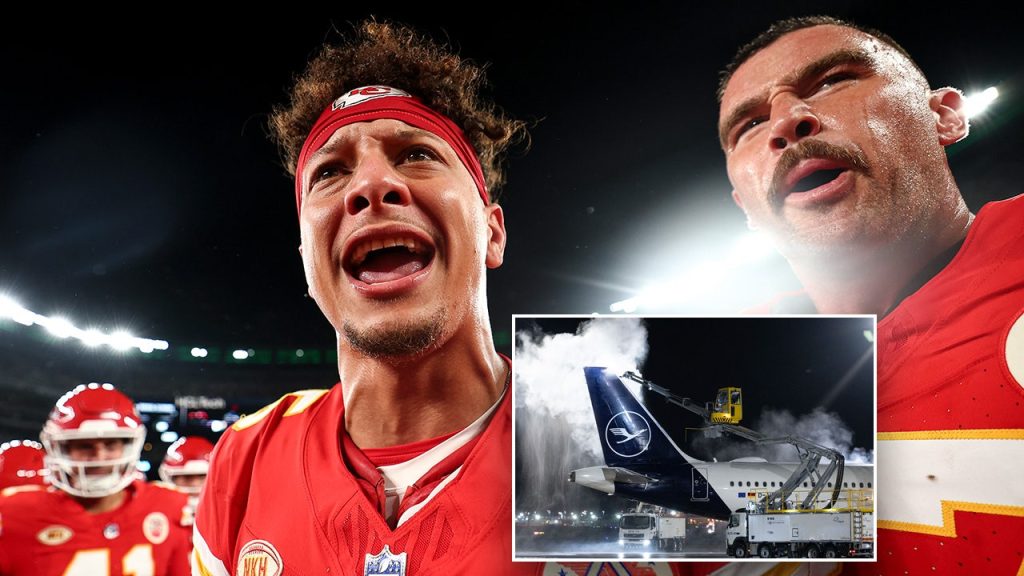The Kansas City Chiefs, poised to embark on their quest for a historic third consecutive Super Bowl victory, encountered an unexpected obstacle on their journey to the regular season finale against the Denver Broncos: a grounded airplane. The team’s flight from Kansas City International Airport (MCI) to Denver was delayed due to severe winter weather conditions, specifically rapid ice accumulation on the airfield, forcing the airport to temporarily halt flight operations. This unforeseen travel hiccup presented a stark contrast to the frigid on-field conditions the Chiefs have braved throughout the season, and underscored the unpredictable nature of winter travel.
The closure of MCI was a direct consequence of the rapid ice accumulation, a phenomenon that poses significant risks to aircraft. The build-up of ice on the wings disrupts the smooth airflow essential for lift, potentially leading to stalls or crashes. Airlines and airport authorities employ various strategies to combat this issue, including de-icing procedures using specialized fluids. However, in extreme weather conditions like those experienced in Kansas City, even frequent de-icing treatments may prove insufficient to keep pace with the rapid ice formation. The severity of the winter storm, predicted to persist through Sunday, further complicated the Chiefs’ travel plans.
The delayed flight added an ironic twist to the Chiefs’ otherwise smooth-sailing season. Having already secured the coveted No. 1 seed in the AFC with a remarkable 15-1 record, the game against the Broncos held minimal significance for their playoff prospects. Key players, including star quarterback Patrick Mahomes and tight end Travis Kelce, were slated to be rested for the game, allowing them to recuperate and prepare for the crucial playoff battles ahead. The game, essentially a footnote in the Chiefs’ season narrative, became a logistical challenge due to the weather-induced travel disruption.
In stark contrast to the Chiefs’ relaxed approach to the season finale, the Denver Broncos and their fans eagerly awaited the Chiefs’ arrival, fully aware of the game’s high stakes for their own franchise. The Broncos harbored playoff aspirations, aiming to secure a postseason berth for the first time since their Super Bowl victory in the 2015 season. A win against the Chiefs would guarantee them the final playoff spot in the AFC, securing a chance to compete for the coveted championship. A loss, however, would leave their fate in the hands of either the Miami Dolphins or the Cincinnati Bengals, highlighting the crucial nature of the game for the Broncos.
The contrasting situations of the two teams created a unique pre-game dynamic. The Chiefs, focused on the larger goal of a Super Bowl three-peat, faced an unexpected travel hurdle for a game of minimal consequence to their playoff standing. The Broncos, on the other hand, viewed the game as a pivotal moment in their season, a potential gateway to a return to the playoffs after a protracted absence. The weather-induced delay, therefore, added another layer of intrigue to the already compelling narrative surrounding the game.
The Chiefs’ predicament underscored the unpredictable nature of professional sports, where even the best-laid plans can be disrupted by external factors. While their on-field performance had been consistently exceptional throughout the season, the team found themselves grappling with logistical challenges off the field. The delayed flight, a minor inconvenience in the grand scheme of their season, served as a reminder of the various factors that can influence a team’s journey, even beyond the realm of the game itself. As the Chiefs navigated the travel complications, their focus remained firmly on their ultimate goal: securing a historic third consecutive Super Bowl title.

